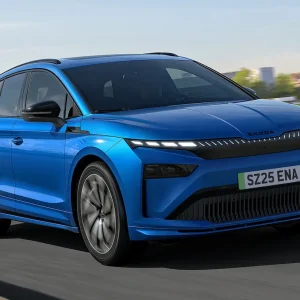London mayor Boris Johnson has declared war on diesels by unveiling an ambitious plan to create the world’s first ultra low-emissions zone in 2020, which will see more polluting diesels pay an extra £10 on top of the current £11.50 congestion charge to enter the capital.
Cars meeting Euro6 emissions legislation, which comes into force for newly homologated models from September 2014, and for all new cars built after September 2015, will be exempt form the additional £10, meaning fleets shouldn’t be directly affected because only cars more than five years old will be subject to the extra charge.
But the impact could be more widespread with reports that Johnson is lobbying Government for a radical U-turn on diesel that could see Vehicle Excise Duty raised and a new system of taxation introduced to persuade drivers to go back to petrol-powered cars.
Since 2002, company car taxation has been based on CO2 emissions, and likewise VED rates form 2001, driving people into diesels at the expense of petrol technology, but diesels prior to the new Euro6 legislation perform comparatively poorly for local air pollutants, such as NOx and particulate emissions, despite offering better CO2 figures.
Air quality is Johnson’s motivation for his anti-diesel stance, with diesel’s higher NOx and particulate emissions being blamed for Britain’s failure to meet strict EU requirements for air quality in London and other major cities around the country, something likely to lead to large fines for the local authorities. According to the Department for Environment, Food and Rural Affairs, London, Leeds and Birmingham won’t be compliant until after 2030, with Tyneside, Liverpool, Bristol, Sheffield and Nottingham meeting the EU requirements five years earlier.
Reacting to the ULEZ announcement, a Society of Motor Manufacturers and Traders spokesman said: “Everyone has their role to play in improving air quality, but it’s not very helpful for anyone to suddenly change the goal posts. It’s confusing for the consumer – whether that’s a private individual or a large fleet. We need a clear, consistent policy, not 12 different taxes in differing parts of the country.”
The spokesman said that even though the SMMT had been consulted in the plans, the £10 charge was unexpected and surprised even those close to the mayor.
One car company set to benefit from an uncertain diesel-powered future is Toyota, which has invested billions in cleaner hybrid technology. Despite this, sales boss Ewan Shepherd is warning against a knee-jerk reaction, saying that “any changes must be evolutionary and respect a fleet’s natural life cycle”.
Shepherd said there are already reports of customers switching from diesels to hybrids, but added that diesels shouldn’t be written off just yet: “Diesel tech will not stand still and the gap in emissions will be addressed. That said, the cost of the new technology might make petrols and petrol-hybrids even more cost-efficient for business.”
BVRLA’s chief executive Gerry Keaney, meanwhile, believes fleets are well-placed to weather any diesel backlash.
“Fleets always operate the newest and cleanest vehicles, and with the NOx and particulate removal gains offered by Euro6 engines it is unlikely that the Government will feel the need to discriminate against diesels. Even if it did, so long as any significant changes are signposted well in advance, our industry has proven it is very capable of adapting.”
Residual value firm Glass’s has also been monitoring the developments closely but believes any changes can be managed if they are carefully considered, according to RV expert Richard Parkin. He said: “The Government needs to remember you can’t change what’s on the road, only what people buy.” Parkin explains retrospective taxation would be a disaster but sensible measures such as sunset clauses could help fleets cope with any big changes, and change seems inevitable.
Rival RV setter Cap predicted that values won’t be impacted if the penalties are purely London-based, but things could change if pre-Euro6 diesel penalties extended beyond the capital city.
“The picture might change if more cities adopt low-emission zones and drivers find themselves paying more, but there is still a long way to go before that point,” said Cap senior consultant Mark Norman.
With 29,000 premature deaths annually attributed to air pollution each year, air quality is unlikely to drop from the political agenda, with transport a long-term target.





